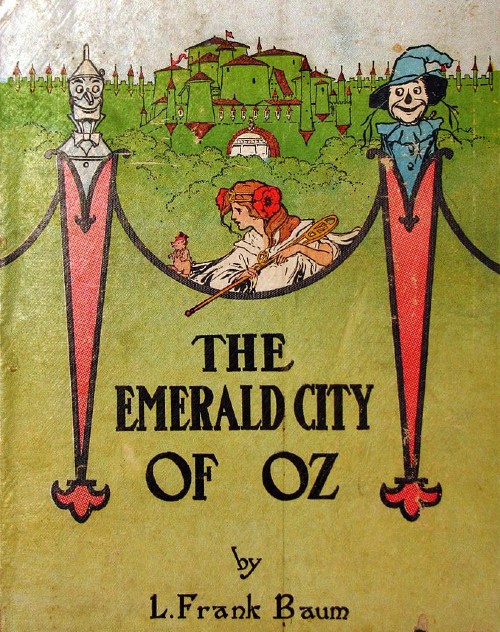Biden intoned the sacred word ‘democracy’ over and over again at the Munich Security conference, including three times in his concluding sentence; but the mask already was stripped from America’s long-service, 1940s, moralising myth some time ago. Recent events in the U.S. have only served to underline ‘democracy’ as sham and to expose the bitter divisions lying beneath America’s skin.
America’s position as ‘global leader’, Stephen Wertheim has observed in his book Tomorrow the World, was premised on a set of impermanent and atypical post-war circumstances that handed primacy to the U.S.; but Wertheim then goes on to underscore how “those days of incontestable unipolarity are over, and cannot be wished back”. The U.S. empire is, then, at an impasse: Its moral and political justification of overseeing a global order shaped to its norms is now beyond its capabilities (militarily or financially) to maintain.
Yet those original ‘pathologies’ built into the system persist. Aris Roussinos, an editor at Unherd notes: “As the useful myth [of spreading democracy hardened into] dogma, the neurotic belief that the end of American hegemony would mean the return of dark forces has become so entrenched that it constrains America’s ability to negotiate reality … Indeed, there are worrying intimations that America’s leaders believe that victory is predestined, purely through its own perceived moral virtue: as if the victories of the Second World War and the Cold War were won through holding to correct ideology”.
Robert Kagan recently ‘nailed’ the impasse: Absent the justifying myth around which to organise the empire (now that U.S. Democracy is tarnished), the moral logic of the entire enterprise begins to fall apart. Kagan argues that the empire is required – in order to preserve ‘democracy’ at home: An America that retreats from global hegemony would no longer possess the cohesive impulse to preserve America as idea at home either.
But the key words here are ‘victories won through holding to correct ideology’. Presenting their case for conviction at the impeachment trial of Trump, the House Democratic managers repeatedly invoked President Trump’s threat to “our democracy”. The notion of a threat to ‘our democracy’ as a political argument is new. It has emerged of late among progressives as a routine term of political art. “The word ‘our’ implies that to be a member of ‘their’ democracy, one has to share their beliefs. If you’re not in, you’re out. And if you’re out, they may come after you for being a threat to democracy”.
So, whilst Biden paid fealty to the myth of spreading democracy at Munich, he also mentioned ‘4IR’ (the fourth industrial revolution, a term much used at Davos to underpin their advocacy of a Great Re-set). What Biden’s Administration is making very plain is that the credo which both defines and distinguishes ‘our democracy’, and which demands conversion in ‘our’ thought and action, is the global pursuit of full-spectrum Human (i.e. diverse identity) Rights, and an overriding commitment to rectifying climate change everywhere. The tools to undertake this redemptive mission imply that the U.S. must command the digital (and cyber) sphere, dominate in space, and ensure unqualified U.S. primacy in AI technology, in quantum computing, robotics, 3D printing and 5G.
So ‘America is back’, and the Great ‘Re-Set’ unfolds itself as a grandiose vision, indeed. It combines a crash, almost wartime, approach to the development of advanced technology, as exemplified by the Apollo program of the 1960s, and to making ‘climate’ the central topic in all spheres of U.S. government activity. Biden has promised to channel $2 trillion into building a “clean” national infrastructure. This is above and beyond the $1.9 trillion ‘stimmie’ package passing through Congress.
That is straight-forward enough. But there is an underside to it all. It is that the Biden Administration precisely intends to use identity politics, U.S. digital and cyber muscle, technology export/import restrictions – and above all, the ‘climate crisis’ – as the means to reimpose U.S. primacy in a climate-led, ‘newly virtuous’, global order.
The U.S. proposes to act as the global ‘enforcer’ of CO2 reduction measures – and in this, Biden intends to focus especially on China. Countries that refuse to reduce their emissions by the necessary amounts voluntarily must be forced to do so. The logic is inescapable. The old-style U.S. sanctions will continue, but a new scaffolding of CO2 border taxes and other penalties, as well as identity politic (i.e. woke) sanctions, will be added to the basket.
Democracy drags on, as a required mantra, but it is now widely accepted that it alone no longer can underpin U.S. exceptionalism. True believers in ‘our exceptional democracy’ understand that when Biden says ‘America is back’, it means – this time – ‘to save the planet’, and redeem our catastrophic (and past, ‘sinful’) behaviour.
By implication, Biden’s executive orders make the release of CO2 in any corner of the world into a U.S. national security issue. The forthcoming National Intelligence Estimate would provide the basis for using the resources of the U.S. intelligence community and national security apparatus to enforce Administration climate policies on a global scale.
Additionally, Biden has emphasized that, for the United States, replacing the world’s entire fossil fuel infrastructure with clean technology over the next 30-40 years, together with the introduction of a “social cost system” based on attaching a numerical value to the “global damage” attributed to emission of a given amount of CO2, will create a whole new digital market for social cost trading credits and CO2 debits – and create a new market of colossal dimensions (dominated naturally by the U.S. financial oligarchs).
All of this – building back cleaner, and the crash Apollo-style investment into technology – implies a veritable tsunami of magic money emanating from the Fed printing presses. Plainly Biden’s planners believe that they can kill two birds with a single stone: save the economy by “Going Big” and “Going Hot” (Treasury chief Yellen), and save the planet at the same time.
Saving the planet on the one hand, represents the moral ‘cudgel’ designed to restore American moral leadership. But, on the other, it lends meaning to that interesting catch-phrase used by U.S. domestic activists when they talk of saving ‘our democracy’ from its domestic and external threats. It’s not just Trump. It should be understood that these converts have set off on that upward path of the ‘Yellow Brick Road’, with Dorothy and friends (Tin Man and Scarecrow), happily singing along, as they march off in search of the magical Emerald City of technological wonders – and there, of course, to meet with the Wizard of Oz himself.
Well, the wizard, has already forewarned our three friends (in his 2020 open letter) of wondrous events to behold: The globe stands at the very “edge of a fundamental reshaping of finance”, he predicts. And yes, immense amounts of financial capital have already been committed to the expectation of radical climate policies. CO2 emissions are being monetized and a vast financial machinery created, tying asset valuations to parameters such as “carbon intensity” and “sustainability indices”. Jonathan Tennenbaum writes:
“Climate projections are being built into long-term risk strategies and the premium structures of insurance companies. The volume of carbon trade is growing exponentially and, with it, the market for climate-linked financial instruments such as green bonds (already at $500 billion) and other so-called green assets.
“Thereby, climate policy becomes a powerful instrument for [America to] shape global investment patterns and financial flows … In the meantime BlackRock, several of whose executives have been named to high positions in the Biden Administration, has announced that it is making climate change central to its investment strategy for 2021”.
The wizard, Blackrock’s own Larry Fink, demands that companies provide him with visions for long term value creation which include a calculation of societal impact. The import of this cannot be overstated. BlackRock does have the weight to ‘swing’ this. Fink lists the question he requires companies in which he invests to ask themselves:
“What role do we play in the community? How are we managing our impact on the environment? Are we working to create a diverse workforce? Are we adapting to technological change? Are we providing the retraining and opportunities that our employees and our business will need to adjust to an increasingly automated world? Are we using behavioural finance and other tools to prepare workers for retirement, so that they invest in a way that that will help them achieve their goals?”
It is not hard to see what is going on here, behind the Wizard’s curtain – America’s financial and banking oligarchy are pulling and tugging at the levers and twiddling the dials to re-invent themselves as a tech-savvy, expert élite. Out, is the classical model for investment – Is this a viable business proposal; does it have an output of real value to offer; is there a demand and the ability to pay for it?
In, comes complicated mathematical calculations of risk, of social credits for metrics of diversity and inclusion, coupled with calculations of debits and costs of impairment to the ‘environment’. And a market in which all these variables such as how many or few LBGTQ are employed may be costed, traded and futures bought and sold – social norms translated into an algorithmic perpetual-motion machine.
It is a new economy. One already epitomised by Tesla. This company on a pedestal of its own, in fact makes no profit from its electric cars; a main income derives from selling CO2 credits.
But wait – what about individuals? Domestic citizens that refuse to alter their environmental, or socially impaired behaviour voluntarily: Will they be ‘cancelled’, or forced to change their conduct too? Fink’s phrase about the need to leverage behavioural finance really says it all: a social credit system is intended. The logic is inescapable.
A whirlwind snatched Dorothy from a dusty Kansas farm, to take her along the Yellow Brick Road of hope, and then up to the futuristic Emerald City, before finally she meets with the Magus, who unexpectedly exposes himself as the sham behind the curtain, frantically pulling at levers to stop the whirling, overheated machine from spinning out of control. Dorothy then wants to go back home to Kansas, and ‘bumps down’ in her old, familiar wooden farmhouse in the dusty Kansas plains. It is unchanged, except that the wind has dropped. And for most of us, ‘coming back home’ with a bump is similar – the dulling encounter with old, failing bridges, potholes in the road, ancient sewers and decrepid rolling-stock.
One of the principal participants at the recent Virtual Davos asked whether the 4IR and the Re-set projects were not, in fact, confusing ends and means. The Re-set seems to be more about the means to preserve the existing 0.1%, albeit now wearing virtuous new hats (i.e. saving the world). All must be changed, in other words, so that everything (including the oligarchs) remain the same? And America is back in charge.
Haven’t we forgotten something, the Davos speaker suggested? Aren’t the ends supposed to be about people?
Perhaps here we should pause, and recall that the Democratic “hold on Congress and the Senate is tenuous: A titular, razor-thin margin.
The American electorate wants Covid relief, economic recovery, and a return to a measure of ‘normality to life’, before any radical change be contemplated, especially since they have observed how over-investment in tech renewables brought California and Texas to the brink of collapse during the recent freeze-up. And thirdly, very close to half of the electorate, voted for Trump, and against the woke programme — especially in its cultural identity revolution iteration.
Across the board, there probably is not enough ‘majority’ to push through this new, 4IR Re-set – at least for now. Both American parties are regrouping, and though active hostilities may have subsided somewhat, the rhetoric of struggles ‘far from won’ – and of future battles to come – has not. Dorothy’s old wooden Kansas farmhouse still is the ground zero for many Americans. It would be great if it were to get a tad better – most just hope for a Life.
Author
Alastair Crooke is a former British diplomat, founder and director of the Beirut-based Conflicts Forum.
![]() Don't forget to feed the birds. Donate here
Don't forget to feed the birds. Donate here




